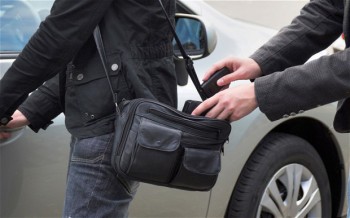Theft is one of the most common crimes in the world, but that does not mean that the penalties for it are any less severe. The punishments for theft in Pennsylvania vary depending on the type of theft, the amount stolen, and whether or not it was taken by force. The penalties can be as severe as 20 years in prison in some cases.
Building a solid defense to theft charges means knowing the law and acting quickly. If you are facing theft charges, you need an experienced attorney who has the knowledge and experience in handling theft offenses.
As a former prosecutor, David Zellis has prosecuted thousands of cases. With over 30 years experience in the criminal justice system, David has the knowledge and skill to aggressively fight for your rights.
Different categories of theft include:
- Theft by Deception
- Theft by Extortion
- Theft by Property Lost, Mislaid, or Delivered by Mistake
- Theft by Receiving Stolen Property
- Theft of Services
- Theft by Failure to Make Required Disposition of Funds Received
- Theft from a Motor Vehicle
- Retail Theft / Shoplifting
- Forgery/Bad Checks
- Identity Theft
IF YOU HAVE BEEN ARRESTED OR ARE BEING INVESTIGATED FOR A THEFT OFFENSE,
CALL OR TEXT TO DISCUSS YOUR CASE WITH DAVE NOW: 215-962-7120
OR SUBMIT A CONTACT REQUEST
Theft by Taking, Deception and Extortion
The most common type of theft under Pennsylvania law is simple taking. This involves the unlawful taking, transfer or control of another person’s property. Theft by deception, on the other hand, happens when a person intentionally uses false impressions to obtain or withhold property, or prevents another person from getting information that would affect that person’s judgment in a financial transaction. It is theft by extortion, meanwhile, to obtain or withhold property by threatening to do any of the following: commit a crime; accuse someone of committing a crime; expose a secret that would subject someone to hatred, contempt or ridicule; take or withhold action as an official, or compel an official to take or withhold action; start or continue a strike, boycott or other collective action; provide information or testify, or withhold information or testimony; or inflict any other harm.
Lost Property, Stolen Property and Theft of Services
It is theft to keep property you know has been lost or mislaid by someone else. Under the law, you must take reasonable steps to return the property to its rightful owner. Receiving stolen property is also a type of theft: It is a crime to intentionally receive, keep or dispose of property that belongs to another person if you know or believe it has been stolen. Theft of services, another crime, happens when a person intentionally obtains services he knows he should pay for and uses deception or threat to do so; tampers with utility meters, transmission lines, cables, wires, cable TV systems, or other such devices; or uses other trickery to avoid paying for services. There are a number of other types of theft, including diverting funds designated for legal obligations, unauthorized use of an automobile, shoplifting, organized shoplifting, library theft, theft of trade secrets, theft of leased property and theft from a motor vehicle.
Penalties for Theft
Theft of property worth less than $50 is punishable by at most one year in jail for a first offense, while theft of between $50 and $200 carries as many as two years in prison. Theft of property worth between $200 and $2,000 is punishable by as many as five years. Grand theft, or theft of property valued at more than $2,000, is a felony punishable by as many as seven years, as is auto theft and theft by receiving stolen property where the person receiving the property is in the business of buying or selling stolen goods. Any theft is punishable by as many as 10 years in prison where the property is a firearm or anhydrous ammonia, or where the property is looted during a disaster. And receipt of a stolen firearm by a person in the business of buying or selling stolen property carries penalties of as many as 20 years. A number of types of theft carry lesser penalties, including theft of services worth less than $50 and shoplifting of less than $150, both of which are treated as summary offenses, similar to speeding tickets.





